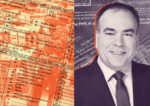Property taxes have skyrocketed in many parts of Chicagoland. School districts, the post-pandemic housing boom and struggles within the office sector are to blame, according to Treasurer Maria Pappas.
Among the areas most impacted, the median residential tax bill in the north and northwest suburbs rose 15.7 percent, marking the largest percentage jump in the last 30 years, the Chicago Tribune reported, citing the Cook County Treasurer’s Office analysis of the nearly 1.8 million property tax bills landing in mailboxes this week. The bills are based on 2022 assessments.
In total, property taxes across Cook County surged by more than $909 million to $17.6 billion, a 5.4 percent jump from the previous year, but lower than the 8 percent inflation rate for 2022. Residential real estate was hit hardest, with homeowners shouldering $599.1 million, or two-thirds, of the tax increase. Of the 1.8 million properties, taxes went up for 1.3 million homeowners and 94,000 commercial property owners.
Several factors culminating in a “perfect storm” contributed to tax hikes throughout the Chicago area. Pandemic-related adjustments made in 2020, which reduced property values by approximately 10 percent, no longer applied. Simultaneously, a booming housing market during the pandemic led to higher property sale prices and values.
Thus, based on new valuations by Cook County Assessor Fritz Kaegi, home values increased by nearly 28 percent, or $3.3 billion, while commercial property values rose by approximately 11.4 percent, or $767.8 million.
Moreover, appeals of Kaegi’s assessments shifted the property tax burden off of commercial assets and onto residential properties. The county’s Board of Review reduced the assessed value of commercial and industrial properties by nearly 20 percent in the north suburbs during the appeal process, while granting limited reductions for residential properties. This shift resulted in approximately 3 percent of the tax burden moving from commercial properties to homes.
“When you combine the reversal of the residential COVID adjustments with the shift of burden from commercial to residential and also take into account the significant levy increases throughout the region, you end up with a perfect storm for residential properties that causes really a once-in-a-generation increase in the burden,” Hal Dardick, a Treasurer’s Office researcher and former journalist, told the newspaper.
Taxing authorities aimed to provide some relief for commercial real estate, given the recent struggles within the office sector, which has been plagued by pandemic-fueled remote work trends, high interest rates and a tight lending environment.
Property tax bills are also influenced by local levies set by schools, park districts and other municipalities. Northern suburban governments increased their levies by approximately 6.6 percent, while rising 5.4 percent in Chicago and 4.4 percent in the south suburbs.
Under Illinois law, school districts are able to raise taxes by the prior year’s increase in the consumer price index or 5 percent, depending on which is less. For the 2022 tax season, school districts were authorized to enact the 5 percent increase, but the new “recapture” policy exacerbated the tax burden.
The policy, which took effect in the 2021 tax season, allows schools and other taxing bodies to recoup money that was refunded to property owners whose assessments were lowered by the Illinois Property Tax Appeal Board, state courts or county offices. Recaptures amounted to $203.7 million in 2022, up $72.7 million from the previous year, according to the analysis.
— Quinn Donoghue
Read more


